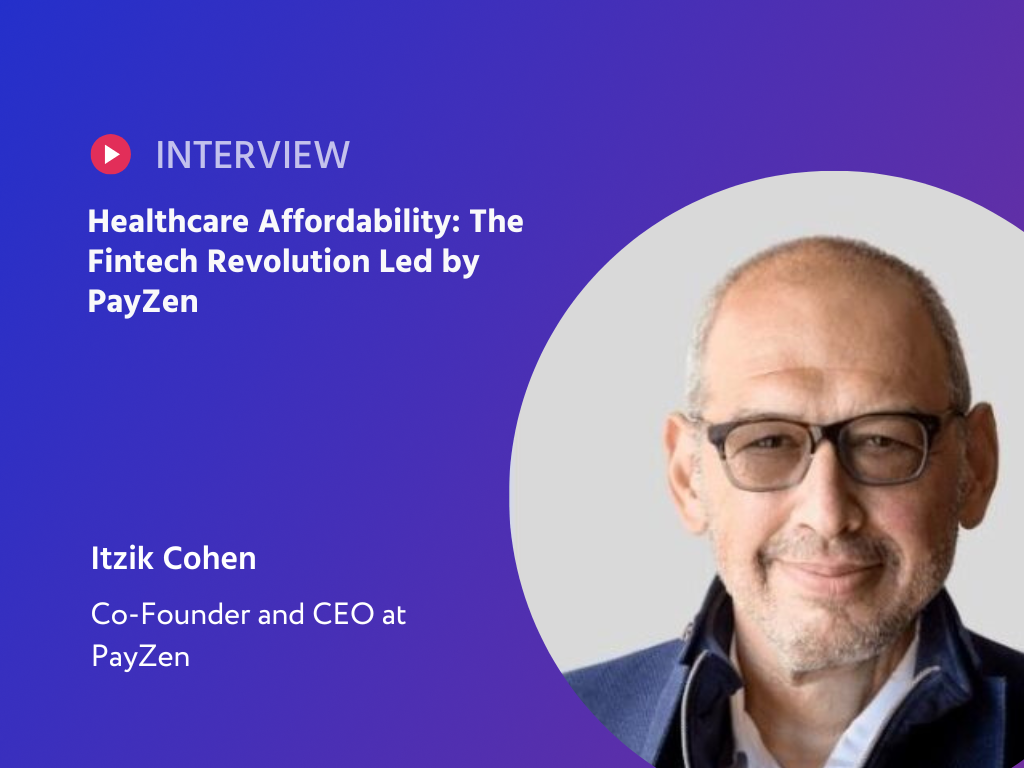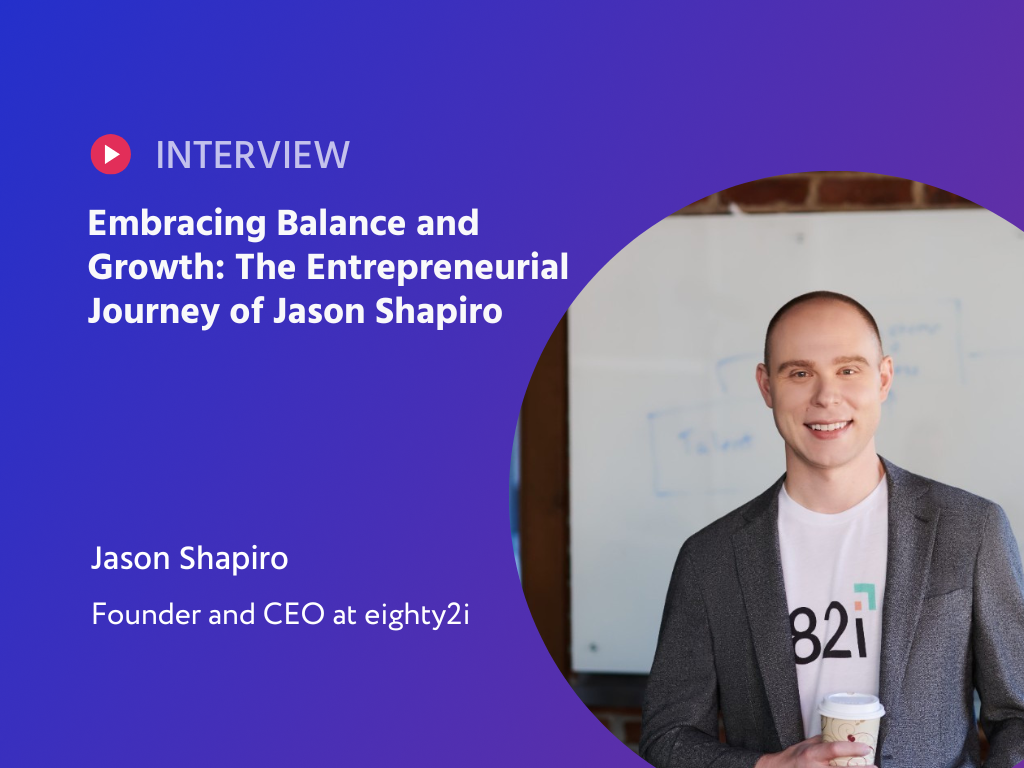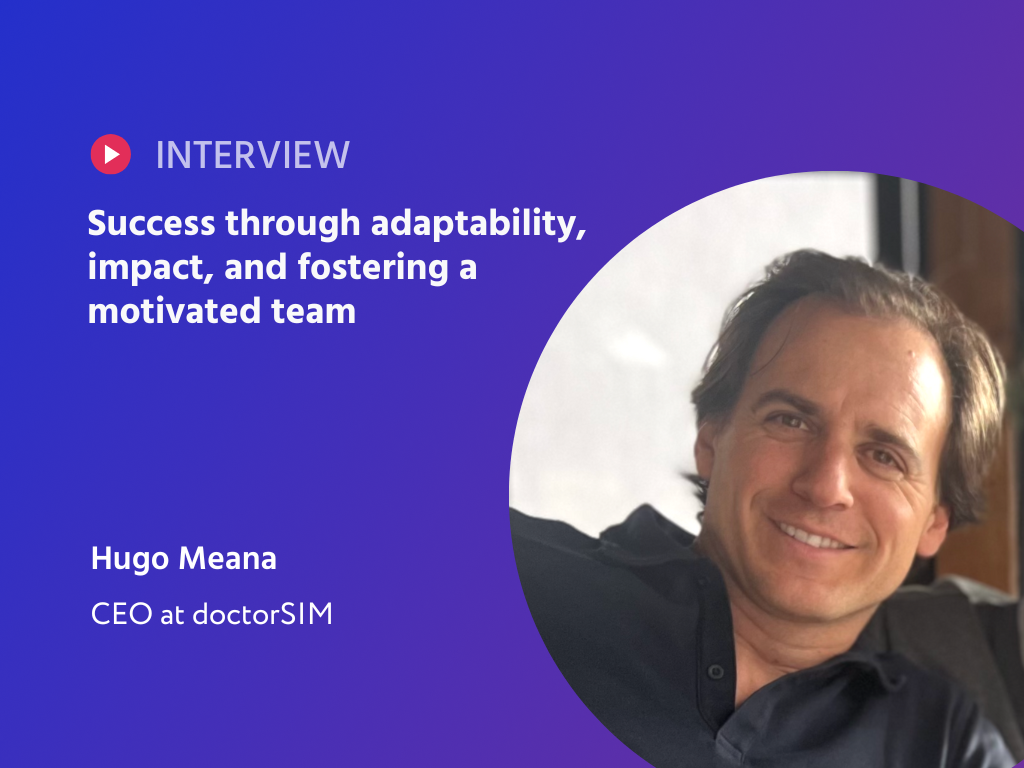In the bustling world of startups, the narrative behind a company can often be as compelling as its product. One such narrative belongs to Itai Amoza, the Co-Founder and CEO of Storydoc, who recently sat down for an enlightening conversation with Matthew at Bright Founders Talk hosted by Temy, a leading international software development company.
The premise of Storydoc is intriguing — turning static business documents like presentations and reports into interactive, engaging pieces. This innovation was born from Amoza's real-life struggle of securing attention from top-tier companies in the UK, only to have his efforts often reduced to a mere slide or brochure.
His story unveils not just the inception of Storydoc but underscores the crucial need for documents to adapt in today's fast-paced, mobile-first world. As you delve into this interview, uncover how a moment of frustration paved the way for a transformative solution in the business documentation landscape.
From Frustration to Innovation: Itai's Journey of Transforming Static Slides into Engaging Narratives
Picture this: You're Itai, a self-proclaimed data geek, diving deep into the labyrinth of UK's consumer giants, trying to grab their attention and seal the deal. You passionately share your story, kindling their interest, only to hear that age-old sentence, "Send me your slides." And just like that, the energy fizzles out. As Itai candidly shared, this wasn’t just a sales pitch but the repeated cycle of flights to London, countless meetings, and endless static presentations.
Now, imagine the sting when you find out those painstakingly crafted documents are barely glanced at, or even worse, fumbled with on a mobile device where they're not optimized. "You'd be surprised just how many of the documents or business documents are opened up on mobile," Itai remarked, adding the challenge of accessing a PowerPoint on a phone. In a world that's rapidly leaning into the digital realm, the frustration was real, and Itai recognized the gaping need for a change.
You'd be surprised just how many of the documents or business documents are opened up on mobile
Determined to revolutionize this space, Itai, with his co-founders, embarked on a quest to turn these mundane documents into something more "appealing, engaging and inviting". By experimenting with various formats and tools, they brought to life Storydoc - a game-changer for sales and marketing professionals. As Itai succinctly put it, "The biggest problem is that people just don't bother even reading them… so how can we make this appealing?" With Storydoc, they've not only answered this query but turned a dead-end into a promising path forward.
Headline: From Startup Courtship to Funding Flirtations: Itai Unravels the Intricate Dance of Entrepreneurship
When diving into the tumultuous waters of founding a company, Itai likens the experience to something everyone can relate to: dating. "Finding founders might be the hardest part of every new startup… it is literally just like marriage," Itai jests. His journey began with a decade and a half of camaraderie with his first partner, a creative whiz who made business narratives come alive. But adding their tech-savvy third wheel, their CTO, was where things got intriguing. Drawing parallels to the tentative steps of dating, Itai shared, "We didn't want to jump into bed too quickly" - a whimsical nod to the seriousness of securing a perfect match.
Finding founders might be the hardest part of every new startup… it is literally just like marriage
But securing the right team was only one part of the entrepreneurial puzzle. Enter the funding game, another venture Itai candidly compared to a relationship, albeit a slightly more complex one. The early stages, he reveals, are a balance act. Founders often oscillate between chasing more traction and making themselves appealing to investors. For Itai and his team, it was all about running two tracks simultaneously - building their product while keeping an open dialogue with potential investors.
One might think the real clincher for investors is the innovation of the product or its market potential. Yet, as Itai underscores, what's truly magnetic is the team's ability to turn an idea into tangible outcomes. He reflects on their journey: from a nascent idea, through initial dialogues, to proof of concepts, and then landing their first client. It's this evolution that makes investors sit up and take notice. And although they faced the challenges of raising funds during COVID, Itai's story is a testament to perseverance and the power of a compelling narrative in the business world.
Going Global with Storydoc: Itai's Journey from Local Vision to International Reality
Imagine this: you're in Israel, a country with a modestly sized local market, but you're bubbling with an idea that screams global potential. This was Itai's reality when he founded Storydoc. "For us, it was always global," he begins, leaning forward with passion evident in his eyes. Launching before the complete ubiquity of Zoom and online document-signing, Itai's vision was clear: prove true value to customers and ensure that this value could span continents. Not an easy task, but then again, who said groundbreaking was supposed to be easy?
For us, it was always global. The true proof is when someone you've never met swipes their credit card
And what is the secret sauce to such rapid international success? Two things: an excellent self-serve option and a global mindset from day one. Even among their earliest clients, a couple hailed from Europe and the US. Today, you can find Storydoc translations from Japanese to Arabic, even a version from Fiji. "It's quite exciting to see just how far it can go," Itai reflects, the pride clear but also a hint of the restless entrepreneur, always looking forward to the next big thing.
But every entrepreneur knows, a product or service is only as good as the team behind it. Navigating the challenges of a fully remote team, Itai valued two things above all: independence and communication. In the vast virtual space of remote work, misunderstandings can spiral. So, for Storydoc, it was crucial to onboard those who could manage their tasks independently while excelling at communication. "You need bright people," Itai stresses. "If you don't have truly great individuals, it just won't materialize." And with this winning combination, Storydoc has managed to weave their narrative across the globe.
Finding Balance in the Start-Up Jungle: Insights with Itai
The digital age has us glued to emails and messaging apps, but Itai shares a fresh insight about the magic of voice notes. Picture it: you're swamped with work and can't sift through the emotional ambiguity of emails or texts. Enter voice notes. "It sort of mimics the experience of just walking to someone in the office and asking a quick question," Itai reveals, emphasizing their efficiency in retaining tone and context. No scheduled Zoom calls or lengthy messages, just a quick vocal nudge to your colleague. Think of it as a digital hallway conversation.
Work-life balance remains the elusive dream for many, especially founders of early-stage startups. Itai candidly delves into the challenges, likening the initial phase to "war mode". Every deal, hire, or release can make or break the business. However, as things stabilize, Itai offers a golden nugget of advice, "This is a marathon, not a sprint." Drawing from his personal experience, he highlights the importance of setting boundaries. "Locking some time in the morning, for example, to do some sports, or some time in the afternoon to be with my kid." It's not just about penciling in tasks, but also moments of respite and joy. As Itai puts it, "Once it's in the calendar, that's my way to remind myself."
Every founder's journey is peppered with lessons, and Itai is no exception. Pointing towards their own early mistakes, he advises new founders against rushing into feature development. "Before running to code, actually try and secure some actual customers." The core of his message? Validate your idea. Don't be swayed merely by personal conviction; let the market tell you if there's genuine interest. Itai encapsulates his philosophy in a quote that resonates across sectors, "If you're working hard in the wrong direction, it's almost impossible to get the positive honeymoon period of any founding team back." A start-up might only have one shot to get it right, making validation key.
If you're working hard in the wrong direction, it's almost impossible to get the positive honeymoon period of any founding team back




